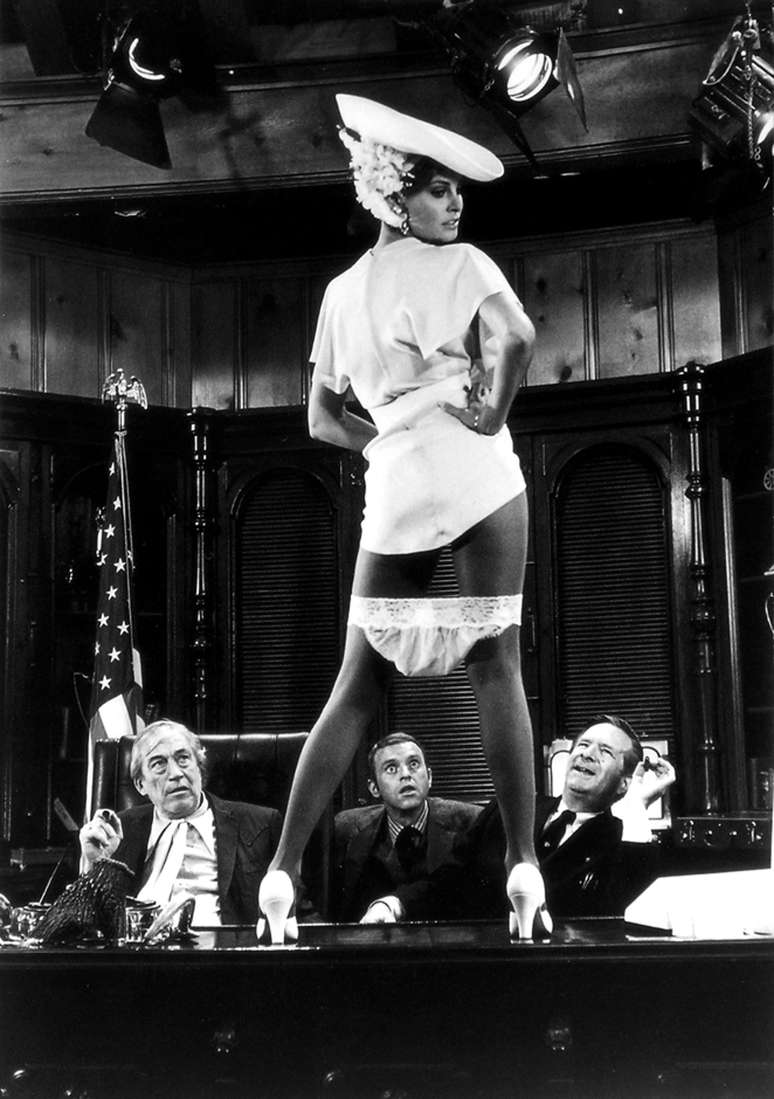Raquel Welch, one of Hollywood’s greatest sex symbols, who marked the era in films such as ‘A Thousand Centuries Before Christ’ (1966) and ‘Fantastic Voyage’ (1966), died this Wednesday (2/15) at age of 82 .
A star who remained in posterity for five decades, Rachel Welch was born Jo Raquel Tejada (her birth name) on September 5, 1940 in Chicago. When she was two years old, she moved with her family to San Diego, where she spent most of her youth. While still in school, she won several beauty contests and even won a scholarship to San Diego State University, where she studied theater for a while.
She was named after her first husband, James Welch, with whom she had two children. In 1963, already divorced, Raquel moved to Los Angeles, where she began working as an actress.
Early in his career, he made small appearances in films and series (such as ‘The Man from Virginia’ and ‘Bewitched’), but soon landed a major role in ‘Fantastic Voyage’, a sci-fi adventure about is the crew of a special submarine, which is reduced to microscopic size to enter the bloodstream of an important patient and save his life by performing a delicate surgery inside his body. Wearing a skintight white rubber diving suit, he mesmerized the audience and helped turn the film into a huge blockbuster.
Then, Raquel appeared in an even more amazing costume, as she entered the prehistoric fantasy “A Thousand Centuries before Christ” (1966). Despite her only speaking one line of the script, the film was responsible for turning her into a star. All publicity for the job centered around Welch and the “prehistoric” bikini she wore.
The actress was not prepared for all this attention. “Suddenly, everything in my life changed and everything about the real me was swept away,” she wrote years later of sudden fame. “She entered the public consciousness as a physical, voiceless presence … she felt like I had stumbled into a trap.”
In the following years, Welch starred in international films, such as the comedy “The Queens” (1966) and the French “Love Through the Ages” (1967). In the United States, she appeared in “The Stone Woman” (1968), opposite Frank Sinatra, “The Price of a Coward” (1968), with James Stewart, and “100 Rifles” (1969), in which she formed an interracial couple with actor Jim Brown.
In Stanley Donen’s The Devil Is My Partner (1967), she was seen seducing a young man who sold his soul to the Devil. “I didn’t have many lines,” she recalled in an interview with The Hollywood Reporter in 2019. “All I did was walk around in a red lace bikini and say, ‘Hot buttered sandwiches?’ I did it with a Southern accent because I fancied Lust [luxúria] it came from a warm place.”
Soon after, he starred in what became his riskiest role: “Man and Woman Up to a Point” (1970). The film is an adaptation of Gore Vidal’s scandalous novel about a gay movie buff who fakes his own death, has sex reassignment surgery, and then claims to be his own widow. The actress played the lead role.
Though the production was a disaster, with several delays from director Michael Sarne and internal strife, Welch has always been proud of her character in the film. “Myra Breckinridge is the antithesis of the sex symbol,” she told GQ in 2012. “She’s a revolutionary. She’s a warrior.”
But “Man and Woman to a Point” also became a cult hit for its sex appeal, with Rachel Welch in lesbian scenes and acting like a dominatrix in steamy domination situations. Several stills from the production became posters, as the film’s fame among perverts and movie buffs continued to grow over the decades. However, it was a critical and box office failure upon its release.
After shocking puritans with her work, she turned to more commercial projects in the 1970s, starring in films such as “Brutal Beauty” (1972), about a figure skater trying to balance her personal life and her dreams of stardom, “The Three Musketeers” (1973), adaptation of the play by Alexandre Dumas, “The End of Sheila” (1973), mystery thriller in the style of Agatha Christie, “Wild Party” (1975), comedy about the arrival of talkies and ‘Crazy Emergency’ (1976), with Bill Cosby and Harvey Keitel.
In 1982, Welch filed a lawsuit against the MGM studio after she was fired from the film “Forgetting the Past” (1982) because it was late for filming. She ended up winning the $10 million settlement case, but her name was tarnished by Hollywood, at the time extremely sexist and unable to condone a woman’s audacity to take on a studio.
As a result, their roles have shrunk. She spent years without appearing in the cinema, making only telefilms, and when she returned, her work was reduced to small participations in films such as “Escândalo na Cidade” (1988), “Shadow in the Night” (1993) and “Run because the police are coming! 33 3/1: The Final Insult” (1994). Subsequently, she appeared again in the series “Lois & Clark: The New Adventures of Superman” (1995), “Seinfeld” (1997) and “Spin City” (1997 and 2000).
Until she was rescued in 2001 in the comedies ‘Slightly Blonde’ and ‘Sabores da vida’. Her last films were the comedies “Forget About It” (2006), with Burt Reynolds, and the hit “How to Become a Conqueror” (2017), with Eugenio Derbez-inspiration for the series “Acapulco”.

Source: Terra
I am Amanda Gans, a motivated and ambitious professional in the news writing industry. With over five years of experience in this field, I have developed an eye for detail and an ability to craft stories that captivate readers. I currently write for Gossipify, where I specialize in beauty & celebrities news. My passion lies with exploring the world of beauty through writing, interviewing experts and developing articles that are both informative and entertaining.









